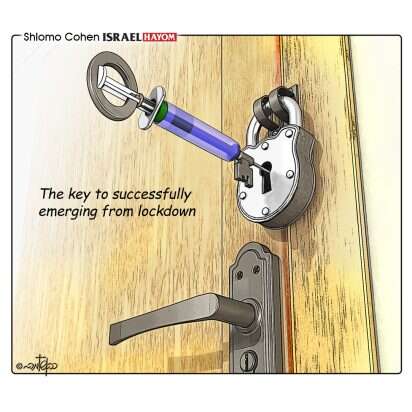The Palestinian Ministry of Health has admitted that it has no idea when it will be getting COVID-19 vaccines that they say have been promised from the major drug manufacturers.
In
early February, the health ministry said that 2 million doses of the Russian Sputnik-V vaccine would arrive starting February 14. It never happened.
None of that happened.
Now, a ministry of health spokesperson has
admitted that they don't know when any vaccines will arrive. He said that the shipments from the COVAX mechanism are due to begin arriving after March 20th, but no date is given for the arrival of the vaccines supposedly procured from Pfizer, Moderna and Russia. Interestingly, he didn't mention the AstraZeneca vaccines that were said to have been purchased as well.
Nowhere in this interview did the spokesperson say a word about Israel. He didn't claim that the PA ever asked for vaccines from Israel, nor did he say that Israel was stopping any vaccines from coming. The times that the Palestinians have asked Israel for help with vaccines, Israel complied (although sometimes delayed.)
The lack of asking Israel for help is despite the fact that new, faster spreading mutations of COVID-19 have been devastating Palestinian hospitals which are at capacity.
That fact the Palestinians have avoided asking Israel for help has simply not been mentioned in the hundreds of media reports criticizing Israel for not providing vaccines to Palestinians. Israel cannot provide vaccines without cooperation of the Palestinian health authorities. They aren't going to leave boxes of vaccines at checkpoints.
Israel's ability to help is much more limited than is being reported, though. Today, Israel does not have enough vaccines to inoculate all Palestinians. It has some 300,000 Moderna vaccines today with 700,000 more supposed to come in April.
Israel was supposed to start a program to vaccinate over 120,000 Palestinian workers today but that has been
delayed for administrative reasons after a pilot program that gave some
700 doses last Thursday. Two doses for each worker would deplete the majority of Israel's existing Moderna supply, and it is still waiting for much more from Moderna as well as AstraZeneca.

 Elder of Ziyon
Elder of Ziyon








































